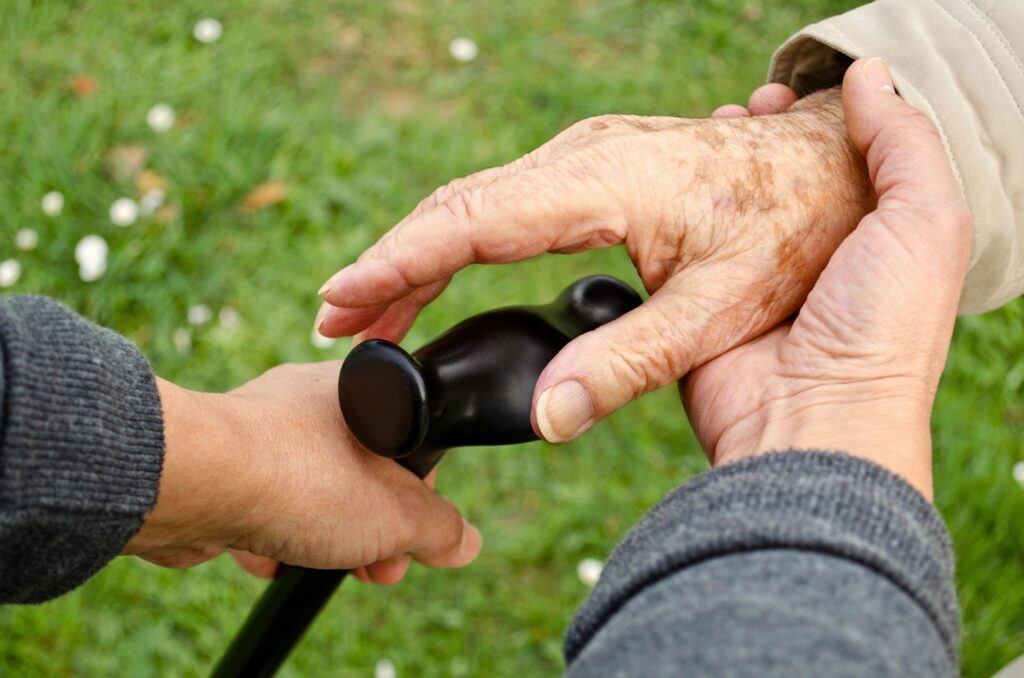When a loved one is diagnosed with dementia care, including Alzheimer’s disease, the journey can be emotionally and physically exhausting for both the patient and their family. As dementia progresses, patients often require specialized care to manage symptoms and maintain comfort. Hospice care is designed to provide that support, helping to ease the challenges associated with end-of-life care for individuals with Alzheimer’s and other cognitive disorders.
In this article, we’ll explore the importance of hospice care for dementia patients, how it benefits both patients and families, and how to navigate this difficult time with peace and dignity.
What Is Dementia and Alzheimer’s Disease?

Dementia is a general term for a decline in mental ability severe enough to interfere with daily life. The most common type of dementia is Alzheimer’s disease, a neurodegenerative condition that leads to memory loss, confusion, and changes in behavior. As Alzheimer’s progresses, individuals may struggle to remember important events, recognize loved ones, and manage everyday tasks.
The symptoms of dementia can vary but generally include:
- Memory loss: Forgetting recent events or familiar faces.
- Confusion: Disorientation in familiar environments.
- Communication problems: Difficulty finding words or understanding speech.
- Behavioral changes: Increased irritability or depression.
As the disease advances, hospice care can offer the necessary support to ensure comfort and dignity in the patient’s final stages.
How Hospice Care Supports Dementia Patients
Hospice care is designed to offer holistic support physical, emotional, and spiritual to individuals with a life-limiting illness, including those with dementia. The hospice team typically includes doctors, nurses, social workers, chaplains, and volunteers who work together to create a personalized care plan tailored to each patient’s unique needs.
1. Pain and Symptom Management
For patients with dementia, managing pain and discomfort is a priority. While patients may not be able to articulate their pain, hospice care providers are trained to recognize signs such as facial expressions, agitation, or changes in behavior. Hospice care providers use medications, therapies, and other techniques to alleviate pain, reduce anxiety, and manage symptoms like nausea or difficulty swallowing.
2. Emotional and Psychological Support
Emotional distress is common among dementia patients due to confusion, memory loss, and fear of the unknown. Hospice care provides emotional and psychological support not only to the patient but also to their family members. Hospice grief counseling is available to help family members cope with the complex emotions associated with caring for a loved one in the final stages of dementia.
3. Personal Care and Assistance
As dementia progresses, patients often require assistance with daily activities like bathing, dressing, and eating. Hospice staff provide hands-on care to ensure that the patient remains clean, comfortable, and well-hydrated, while maintaining their dignity throughout the process.
4. Creating a Peaceful Environment
Patients with dementia may become agitated or confused in unfamiliar surroundings. Hospice care facilities are designed to provide a calm, familiar, and comforting environment for dementia patients. Hospice teams also help families personalize the environment with meaningful items, such as favorite music, photos, or personal mementos, to help the patient feel more at ease.
Challenges of Hospice Care for Dementia Patients
While hospice care is essential for dementia patients, there are specific challenges to consider:
- Communication barriers: As cognitive abilities decline, patients may have trouble expressing their needs. Hospice providers rely on non-verbal cues to assess the patient’s comfort and needs.
- Behavioral changes: Patients with dementia may exhibit aggression, confusion, or withdrawal. Hospice staff are trained in de-escalation and comfort techniques to help manage these behaviors.
- Decision-making: Families may face tough decisions regarding nutrition, medications, or life-sustaining treatments. Hospice care focuses on comfort and quality of life, helping families make decisions in alignment with the patient’s wishes.
The Importance of Early Hospice Care for Dementia Patients
Many families wait until the final stages of dementia to consider hospice care, but starting hospice earlier can significantly improve the quality of life for both the patient and their loved ones. Early hospice care allows families to establish a relationship with the hospice team, receive the necessary support, and ensure a more comfortable and peaceful transition.
Consider talking to your doctor or hospice provider about starting care early to ensure that both you and your loved one receive the full benefits of hospice care.
Supporting Family Members Through the Hospice Journey
Caring for a loved one with dementia can be emotionally taxing. Hospice care providers not only focus on the patient’s needs but also offer vital support to families. Support groups for caregivers can provide a safe space for family members to share experiences, receive advice, and connect with others facing similar challenges.
Additionally, hospice care offers respite care, giving family caregivers a much-needed break. This respite can help reduce caregiver burnout and allow family members to maintain their own well-being during this emotionally challenging time.
Conclusion: Providing Compassionate End-of-Life Care for Dementia Patients
Hospice care is a compassionate and holistic approach to providing comfort and dignity to patients with dementia, including Alzheimer’s disease. By focusing on pain management, emotional support, and quality of life, hospice care ensures that patients are able to spend their final days with peace and comfort.
If you are caring for a loved one with dementia, consider reaching out to Shining Light Hospice to learn more about how we can support you and your loved one during this challenging time. Our team is dedicated to providing the care and comfort that both patients and their families deserve.






